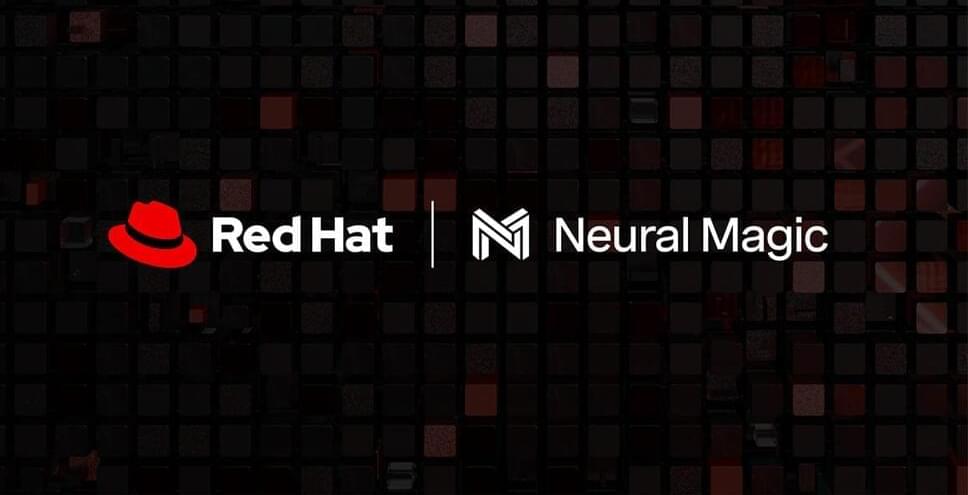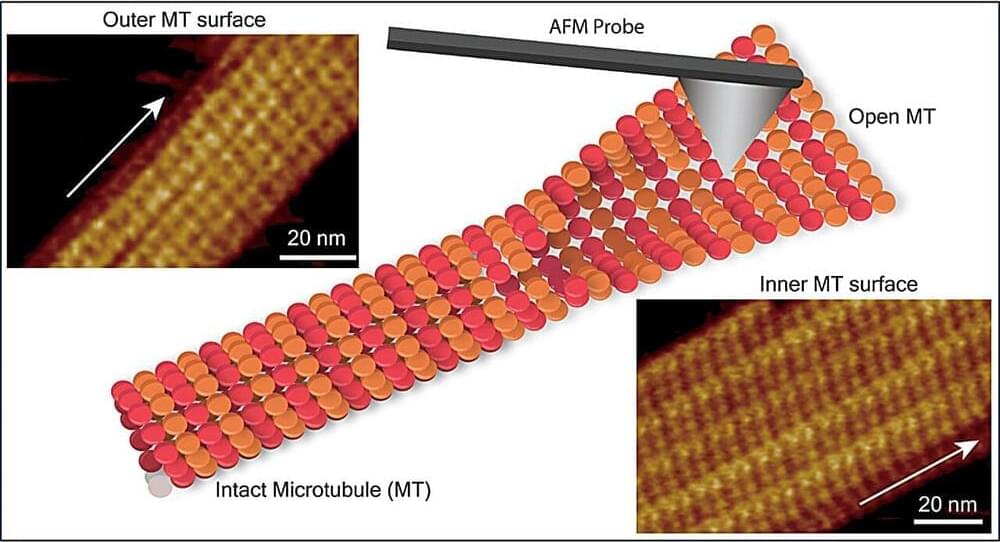Exponential Medicine is a unique and intensive four-day experience that gathers world-class faculty, innovators and organizations from across the biomedical and technology spectrum to explore and leverage the convergence of fast moving technologies in the reinvention and future of health and medicine.
Get the latest international news and world events from around the world.
Sparks! | Magdalena Kowalska | Future of detection and imaging
Talk recorded live at CERN on 17 November 2022 during the second edition of the Sparks! Serendipity Forum at CERN. #CERNSparks.
There are many developments in the field of detection and imaging, and some are happening here at CERN — as Madgdalena Kowalska, a senior researchers explains.
Pete Shadbolt at MIT EmTech: Building the World’s First Useful Quantum Computer
Quantum computers hope to excel at solving problems that are too large, complex, or cumbersome for even the most powerful supercomputers, but many hurdles remain before they can be reliably put to commercial use. Here, we share an update on PsiQuantum’s approach, and recent progress towards useful, large-scale machines.
PsiQuantum co-founder \& Chief Scientific Officer Pete Shadbolt presents at the 2024 MIT EmTech conference in Cambridge, MA.
Crafting Qubits: Harnessing Quantum Mechanics for Computation
How do we actually create and manipulate qubits, essential for realizing quantum computation? Chief Scientist of Hardware Technology Development at Quantinuum, Patty Lee, joins Brian Greene to discuss various quantum strategies, their achievements to date and pathways forward.
This program is part of the Big Ideas series, supported by the John Templeton Foundation.
Participant: Patty Lee.
Moderator: Brian Greene.
00:00 — Introduction.
01:51 — Participant Introduction.
02:44 — Approaches To Quantum Computing.
07:19 — The Trapped Ion Approach In Practice.
22:58 — Obstacles In Quantum Computing.
35:14 — The Future Of Quantum Computing.
40:10 — Credits.
SUBSCRIBE to our youtube channel and \.
Ben Goertzel: AGI, SingularityNET and Decentralized AI
This episode is sponsored by Legal Zoom.
Launch, run, and protect your business to make it official TODAY at https://www.legalzoom.com/ and use promo code Smith10 to get 10% off any LegalZoom business formation product excluding subscriptions and renewals.
In this episode of the Eye on AI podcast, we dive into the world of Artificial General Intelligence (AGI) with Ben Goertzel, CEO of SingularityNET and a leading pioneer in AGI development.
Ben shares his vision for building machines that go beyond task-specific capabilities to achieve true, human-like intelligence. He explores how AGI could reshape society, from revolutionizing industries to redefining creativity, learning, and autonomous decision-making.
Throughout the conversation, Ben discusses his unique approach to AGI, which combines decentralized AI systems and blockchain technology to create open, scalable, and ethically aligned AI networks. He explains how his work with SingularityNET aims to democratize AI, making AGI development transparent and accessible while mitigating risks associated with centralized control.
Ben also delves into the philosophical and ethical questions surrounding AGI, offering insights into consciousness, the role of empathy, and the potential for building machines that not only think but also align with humanity’s best values. He shares his thoughts on how decentralized AGI can avoid the narrow, profit-driven goals of traditional AI and instead evolve in ways that benefit society as a whole.
Music by Protector 101 : “Runners” (2011)
Video edit by Lueur Verte.
Footage taken from the movie : Blade Runner (1982)
Buy the Album here : http://protector101.bandcamp.com/album/protector-101
Finally, a new Cybernetika track!
Neuronal Interface is slightly oldschool DnB/Neuro, Deus Ex and cyberpunk influenced.

Dissecting the causal role of early inferior frontal activation in reading
Cognitive models of reading assume that speech production occurs after visual and phonological processing of written words. This traditional view is at odds with more recent magnetoencephalography studies showing that the left posterior inferior frontal cortex (pIFC) classically associated with spoken production responds to print at 100–150 ms after word-onset, almost simultaneously with posterior brain regions for visual and phonological processing. Yet the theoretical significance of this fast neural response remains open to date. We used transcranial magnetic stimulation (TMS) to investigate how the left pIFC contributes to the early stage of reading. In Experiment 1, 23 adult participants (14 females) performed three different tasks about written words (oral reading, semantic judgment and perceptual judgment) while single-pulse TMS was delivered to the left pIFC, fusiform gyrus or supramarginal gyrus at different time points (50 to 200 ms after word-onset). A robust double dissociation was found between tasks and stimulation sites — oral reading, but not other control tasks, was disrupted only when TMS was delivered to pIFC at 100 ms. This task-specific impact of pIFC stimulation was further corroborated in Experiment 2, which revealed another double dissociation between oral reading and picture naming. These results demonstrate that the left pIFC specifically and causally mediates rapid computation of speech motor codes at the earliest stage of reading and suggest that this fast sublexical neural pathway for pronunciation, although seemingly dormant, is fully functioning in literate adults. Our results further suggest that these left-hemisphere systems for reading overall act faster than known previously.
Significance Statement Recent neuroimaging data suggest that left posterior inferior frontal cortex, classically associated with spoken production, responds to print simultaneously with left fusiform and supramarginal gyri, each responsible for visual and phonological processing, contrary to traditional serial cascade models of reading. While the region is now known to mediate different aspects of cognitive processing, the functional significance of this fast neural response remains unclear. Using transcranial magnetic stimulation, we show that early inferior frontal activation plays a specific and causal role in speeded oral reading at 100 ms after word-onset. This fast sublexical neural pathway for pronunciation, although seemingly dormant, is fully functioning in literate adults. We also propose that the left-hemisphere reading systems act differently and faster than known previously.

Atomic force microscopy reveals microtubule defects at submolecular resolution
In a study recently published in the journal Nano Letters, researchers from Nano Life Science Institute (WPI-NanoLSI), Kanazawa University, Kanazawa, Japan, used frequency-modulated atomic force microscopy to reveal the submolecular structure of microtubule (MT) inner surface and visualize structural defects in the MT lattice, providing valuable insights into the complex dynamic processes that regulate microtubule function.
Microtubules (MTs), a key component of the cytoskeleton in eukaryotic cells, serve as scaffolds and play vital roles in cellular processes such as cell division, cell migration, intracellular transport, and trafficking. MTs are composed of α-tubulin and β-tubulin proteins, which polymerize into dimers and assemble into linear protofilaments that form a cylindrical lattice.
Traditional methods like X-ray crystallography and cryo–electron microscopy have provided structural insights into MTs but involve complex sample preparation and data analysis. There remains a need for techniques that can examine MT structural features, assembly dynamics, and lattice defects at submolecular resolution under physiological conditions.